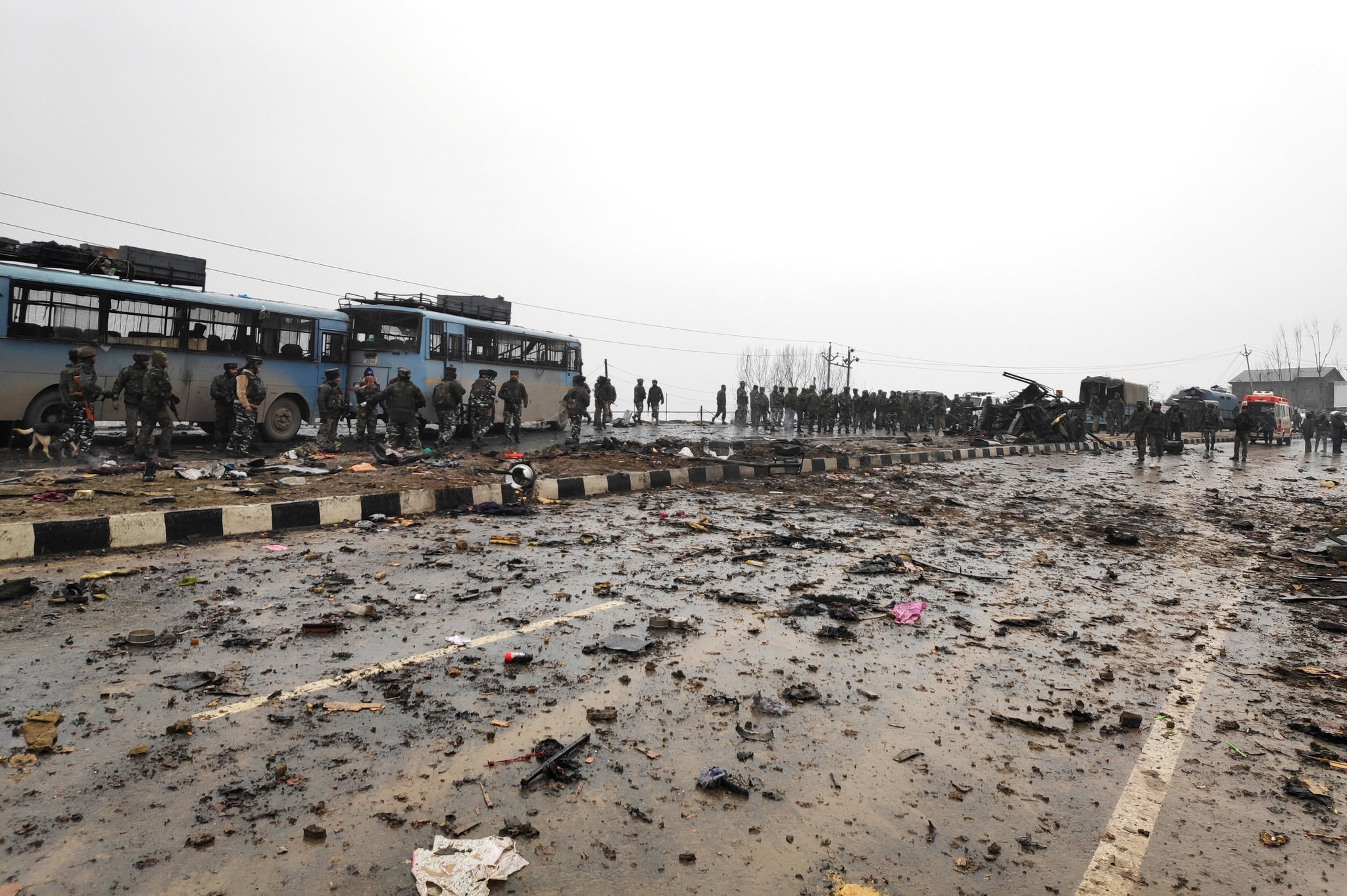


On January 19, the Kashmiri Pandit community observes Remembrance Day, also known as Exodus Day, to mourn the loss of their homes, culture, and lives. This day marks the forced exodus of thousands of Kashmiri Pandits from the Kashmir Valley due to targeted attacks from militants. Despite disputed numbers, the harrowing reality of the violence and genocide against the minority community cannot be denied. The lack of intervention from the government and law enforcement agencies only adds to the pain and trauma of the Kashmiri Pandit community.
Background
The Kashmiri Pandits, an ancient and highly educated minority Hindu community, have inhabited the Kashmir Valley for centuries. However, their presence has been marred by a history of persecution and discrimination.
In the 1980s, the rise of militancy in Kashmir fueled an atmosphere of fear and violence. Kashmiri Pandits became targets of attacks, intimidation, and threats. On January 19, 1990, the situation escalated when a group of militants gunned down Tika Lal Taploo, a prominent Pandit politician.
The Exodus
The killing of Taploo sparked widespread panic and fear among the Pandit community. Within a few weeks, an estimated 200,000 Pandits fled the Kashmir Valley, leaving behind their homes, belongings, and ancestral lands. The exodus was largely a result of targeted attacks, threats, and a lack of government protection.
Genocide and Atrocities
While the exact number of Kashmiri Pandits killed during this period is disputed, there is overwhelming evidence of systematic violence and genocide. Survivors have recounted harrowing tales of torture, rape, and murder. Temples and religious sites were desecrated and destroyed.
Government Response
The Indian government's handling of the Kashmiri Pandit exodus has been criticized for being inadequate and ineffective. The lack of intervention by law enforcement agencies and the failure to provide protection to the community has been widely condemned.
Continuing Legacy
Despite the passage of over three decades, the Kashmiri Pandits have not been able to return to their homeland. They remain displaced in refugee camps and other parts of India, living with the trauma of the past and the ongoing fear of persecution. The unresolved conflict in Kashmir continues to cast a shadow over the lives of the displaced Pandits.
Top 5 FAQs
1. What is Exodus Day? Exodus Day, also known as Remembrance Day, is observed on January 19 to commemorate the forced exodus of Kashmiri Pandits from the Kashmir Valley.
2. How many Kashmiri Pandits were killed? The exact number of killings remains disputed, but estimates range from hundreds to thousands.
3. Why were Kashmiri Pandits targeted? The Pandits were targeted due to their religious identity and their perceived support for the Indian government. Militants aimed to create a fear psychosis and drive them out of the Kashmir Valley.
4. Has the government taken any steps to address the issue? The government has established a fund to support displaced Pandits and has made promises of rehabilitation. However, these efforts have been criticized as inadequate and have failed to fully address the community's concerns.
5. Is there hope for the return of Kashmiri Pandits? The return of Kashmiri Pandits to their homeland is a complex and contested issue. The ongoing conflict in Kashmir and the presence of militant groups pose significant challenges to their safe return. However, efforts by the community and international organizations continue to push for a resolution and the eventual return of the Pandits to their ancestral lands.

The Indian National Congress (INC) has announced its plans to launch a month-and-a-half-long campaign in Jammu and Kashmir on April 22. The purpose of the campaign is to demand the restoration of statehood and to further the “Save the Constitution” movement. With the recent appointment of Syed Naseer Hussain as the new J&K in-charge, the party hopes to regain its lost support in the Union Territory. This campaign comes at a crucial time, as former supporters of the Congress leader Ghulam Nabi Azad have recently dissolved their party, raising questions about their political future. The Congress hopes to use this opportunity to highlight the BJP's failures in empowering elected governments and its betrayal over statehood.

Thousands of citizens in Pune are rallying together through an online petition to demand the protection of their city's hills and hill slopes from any construction. The petition is addressed to the former Pune Municipal Commissioner and Chairman of the state-appointed Committee on Bio-Diversity Park and Hill Top Hill Slopes. The citizens are concerned that the committee's review may result in allowing construction on the hills, while strict measures have already been mandated by the government to prevent it. The citizens stress the importance of preserving these natural areas for the city's ecological balance and urge the government to uphold its promise to future generations.

After the devastating terror attack in Pahalgam, Jammu and Kashmir, India has suspended the 1960 Indus Waters Treaty with Pakistan. This decision was made during a key meeting chaired by Union Home Minister Amit Shah, with discussions on potential actions being taken against Pakistan. As tensions between the two countries continue to escalate, Indian leaders have condemned Pakistan for their involvement in the attack and have vowed to take strong measures in response.

The Indian Army made its first major move since the Pahalgam terror attack on April 22, as they killed top Lashkar-e-Taiba (LeT) commander Altaf Lalli in an encounter in Jammu and Kashmir's Bandipora district. The security forces are on the hunt for the terrorists responsible for the brutal killing of 26 civilians and have launched a massive anti-terror operation. In other developments, Indian Army Chief General Upendra Dwivedi visited Srinagar for a security review meeting and the authorities demolished the houses of two suspected terrorists involved in the Pahalgam attack.

In a hearing at the Supreme Court, the bench rebuked Congress leader Rahul Gandhi for his "irresponsible" comments about freedom fighter Vinayak Damodar Savarkar. The judges highlighted the need to show respect for India's freedom fighters and questioned whether Gandhi was aware of his grandmother and Mahatma Gandhi praising Savarkar. The court also stayed an Allahabad High Court order that refused to dismiss a lower court's summons against Gandhi over his alleged remarks about Savarkar.

The Supreme Court has stepped in to warn Congress MP Rahul Gandhi over his comments about India's independence activist Veer Savarkar, staying a trial court's summons to the politician. The top court emphasized that Savarkar is a highly respected figure in Maharashtra and stated that no one would be allowed to make derogatory remarks about freedom fighters. The court also pointed out that Gandhi's family has had a history of praising Savarkar and Gandhi himself has been warned that the court will take suo motu cognizance of any such remarks. Additionally, the article also mentions an attack in Jammu and Kashmir that has led to heightened tensions between India and Pakistan.

In a successful operation by the security forces, a Lashkar-e-Taliba (LeT) terrorist associate, identified as Altaf Lalli, was killed in an ongoing encounter in the Bandipora district of Jammu and Kashmir. The encounter began after the security forces received intelligence about the presence of terrorists in the area. Two security personnel have also been injured in the exchange of fire and are currently undergoing treatment at a nearby hospital. The clash highlights the continued efforts of the security forces to combat terrorism in the region.

The Telangana-Chhattisgarh border is a hotbed of tension as security forces step up their efforts to root out Maoist activity from the region. Top Maoist leader Hidma is the target of current high-security operations, with forces strategically advancing through previously inaccessible areas. With mounting pressure, sources indicate that the hold of the Maoists in the region is gradually weakening, making for a tense and critical situation.

As the nation grapples with the aftermath of a terror attack in Pahalgam, security forces are undertaking a massive operation in the dense Karregutta hills forest to eliminate the heart of Naxal command. This operation, involving 7,000 personnel and cutting-edge technology, aims to strike a blow at Naxalism by targeting top leaders of the PLGA Battalion No. 1. This bold move by the CRPF, with the Director General personally overseeing the operation, marks a turning point in the fight against Maoist insurgency. With five Naxals already killed and more likely to come, the operation is being hailed as a decisive victory and could potentially spell the end of Naxalism in India.

The US Government has publicly criticized The New York Times for its reporting on the recent terror attack in Pahalgam, Kashmir, calling attention to the difference between the newspaper's use of "militant" instead of "terrorist." This choice of words is not only misleading but also minimizes the severity of the attack, which was claimed by a Pakistan-based group with links to Lashkar-e-Taiba. The US House Foreign Affairs Committee took to social media to point out the error and highlight the real nature of the attack, noting that it has significant implications for regional security.